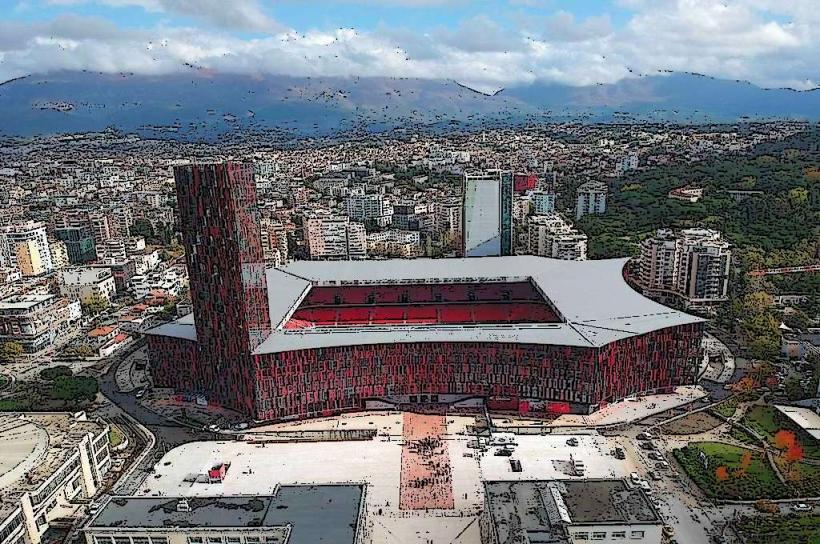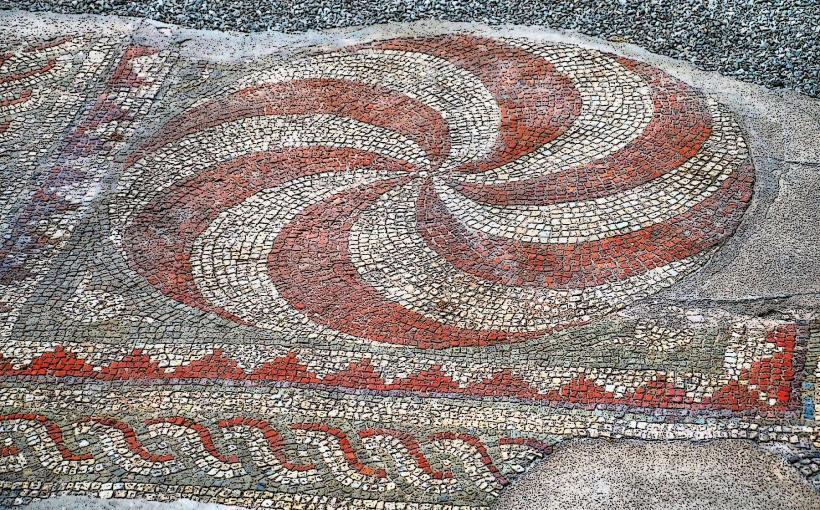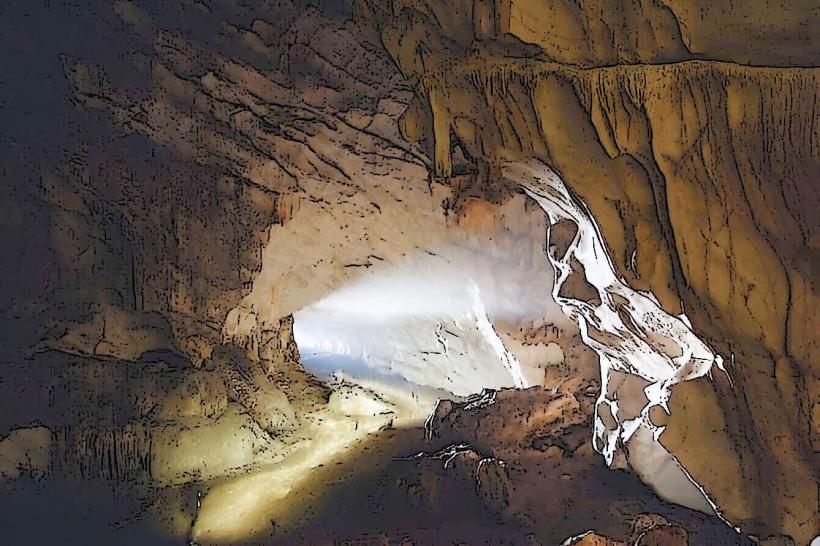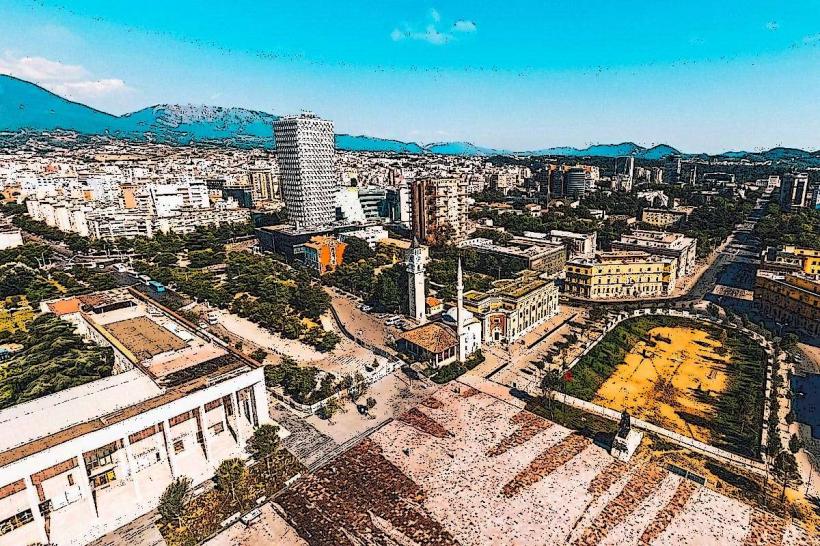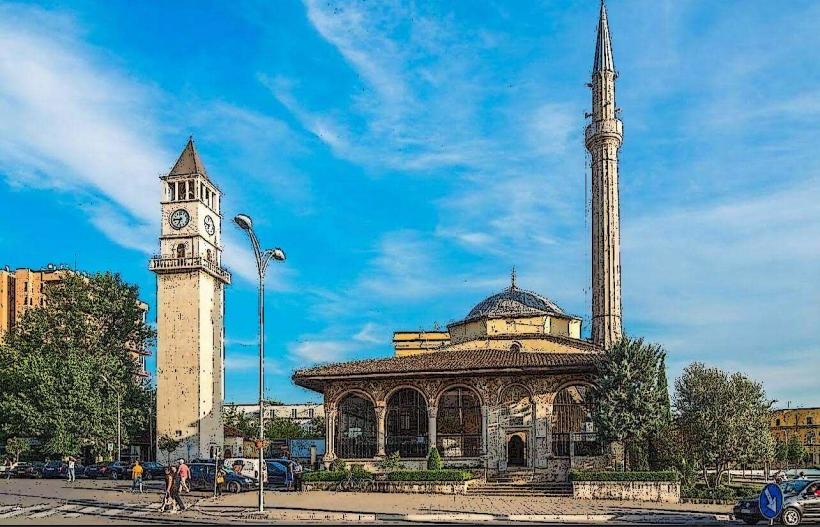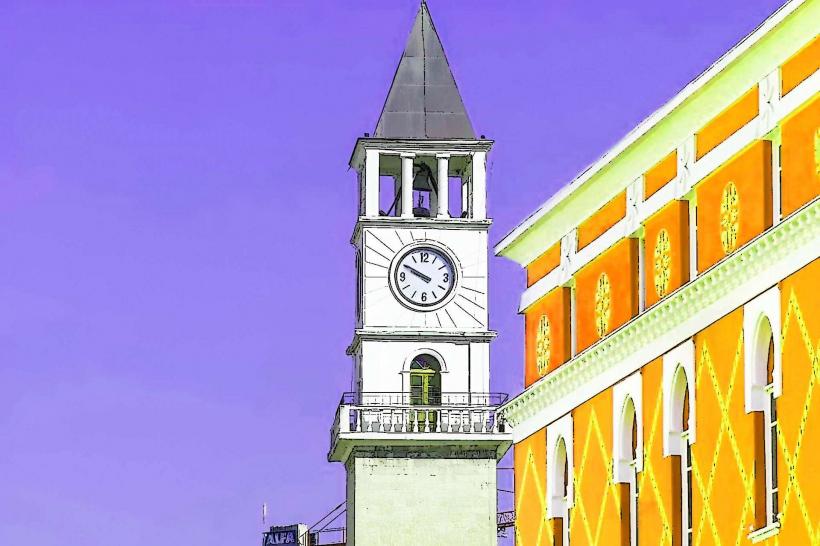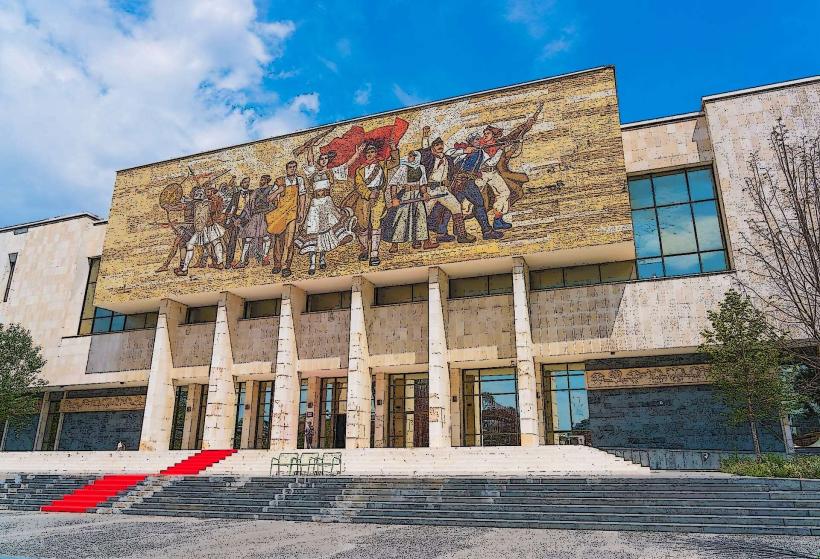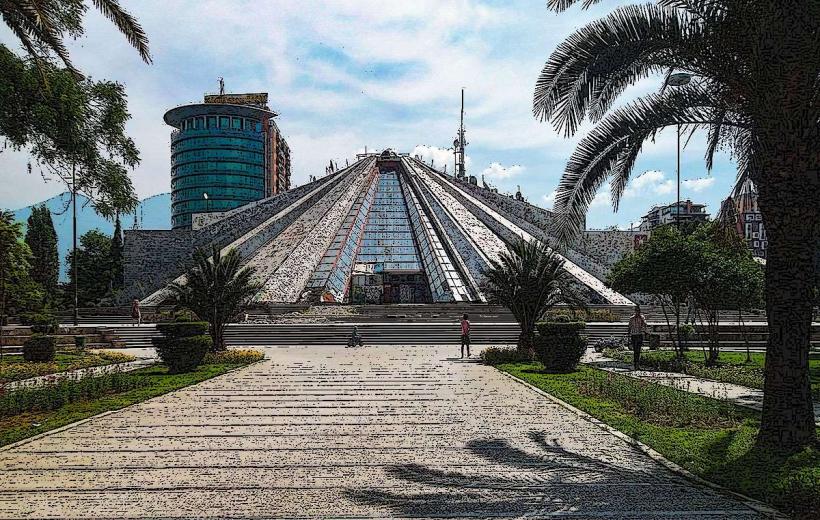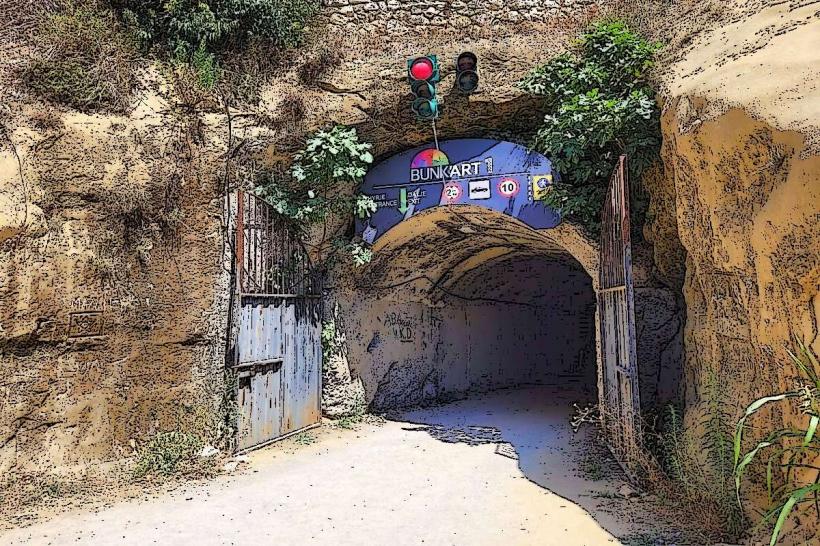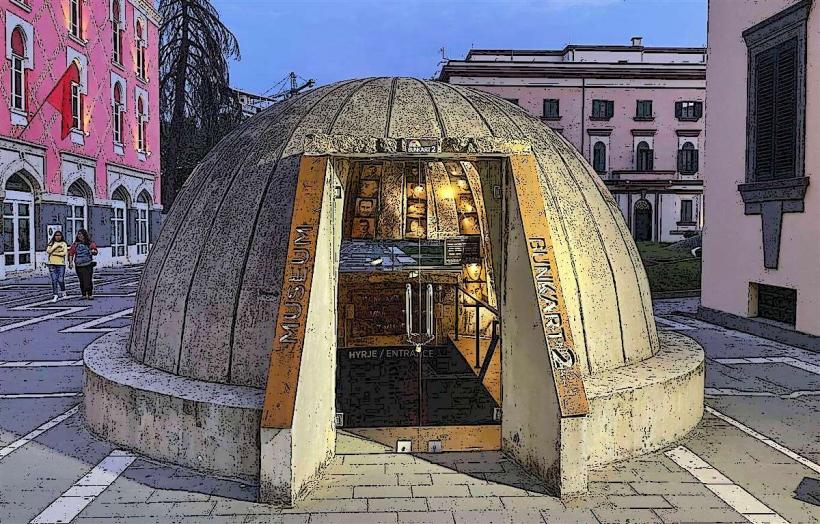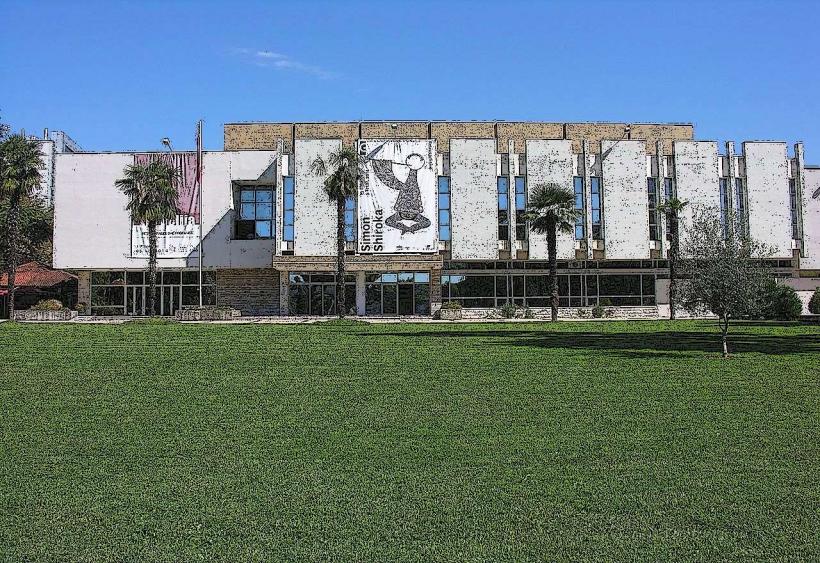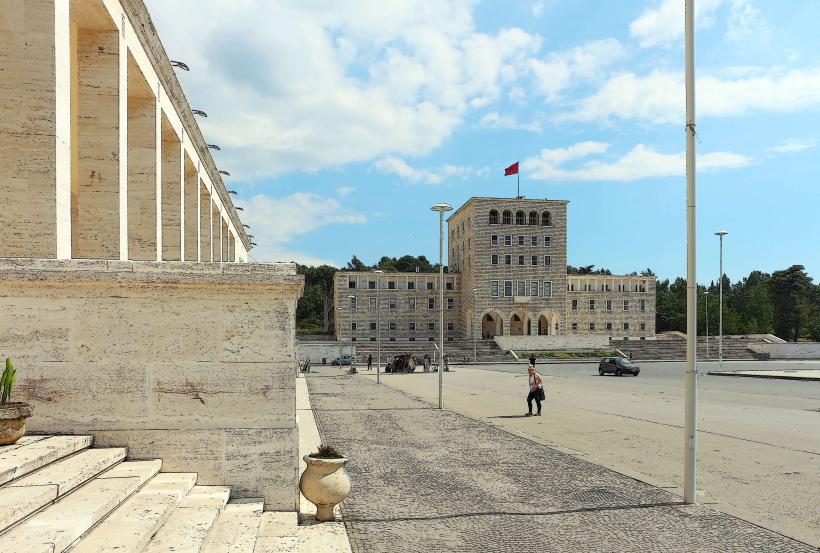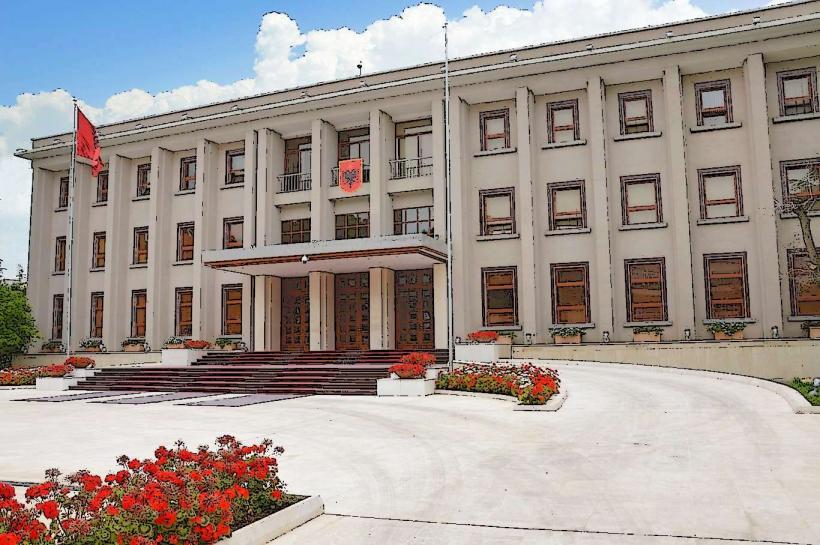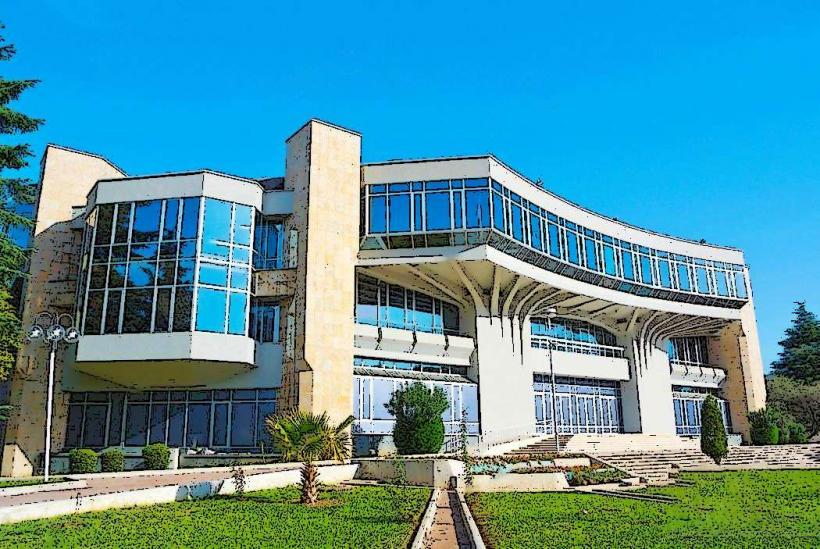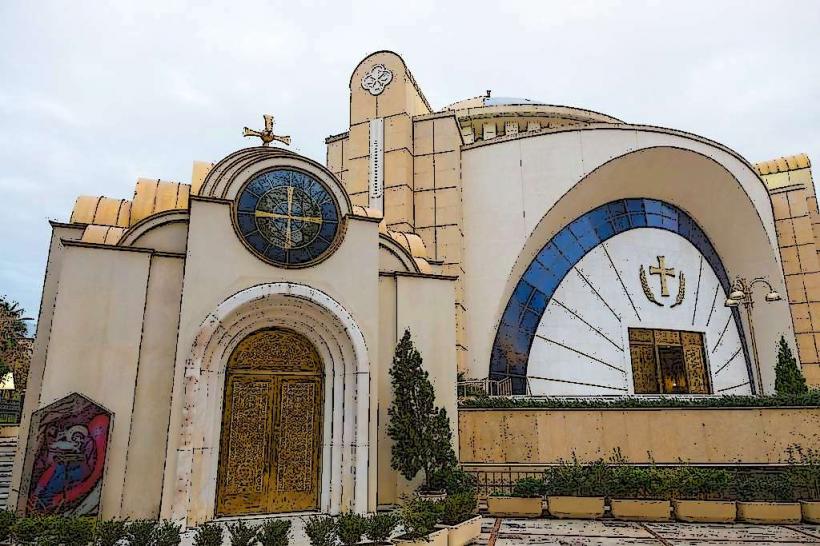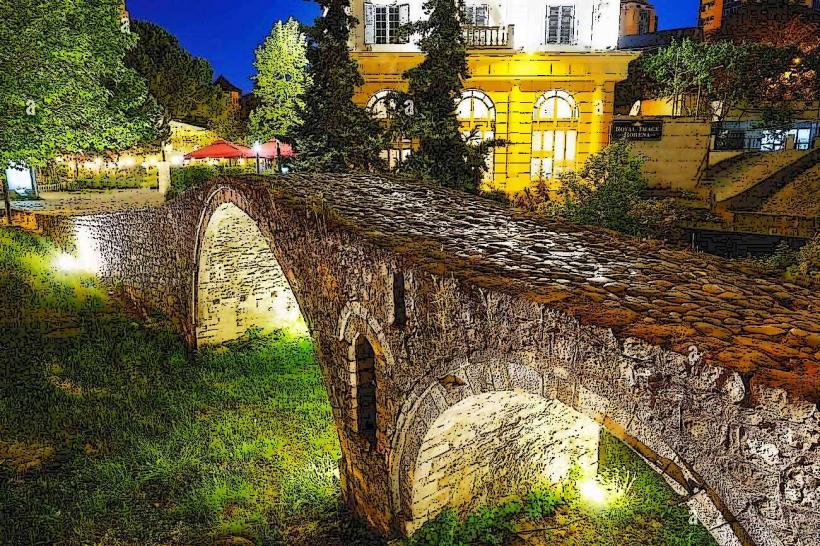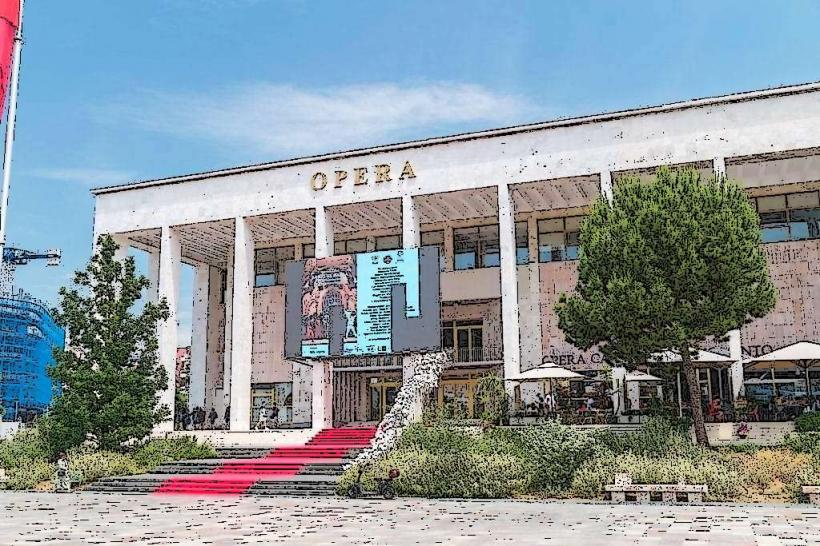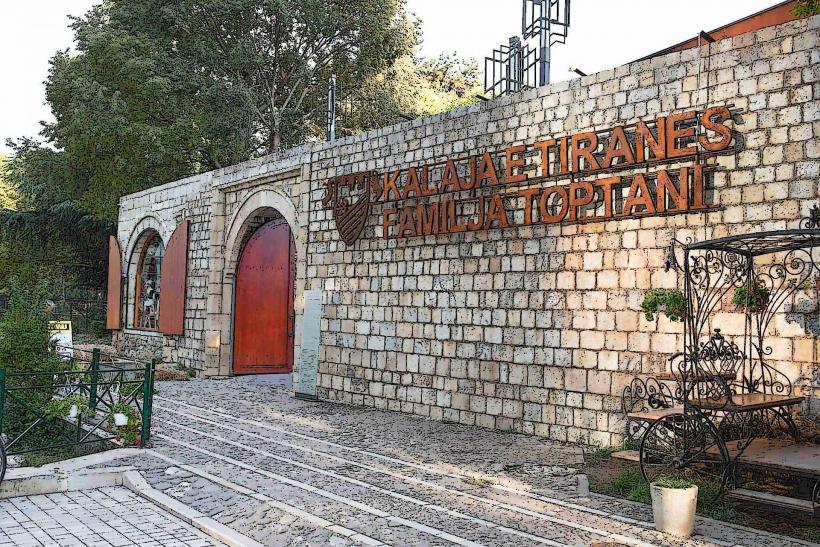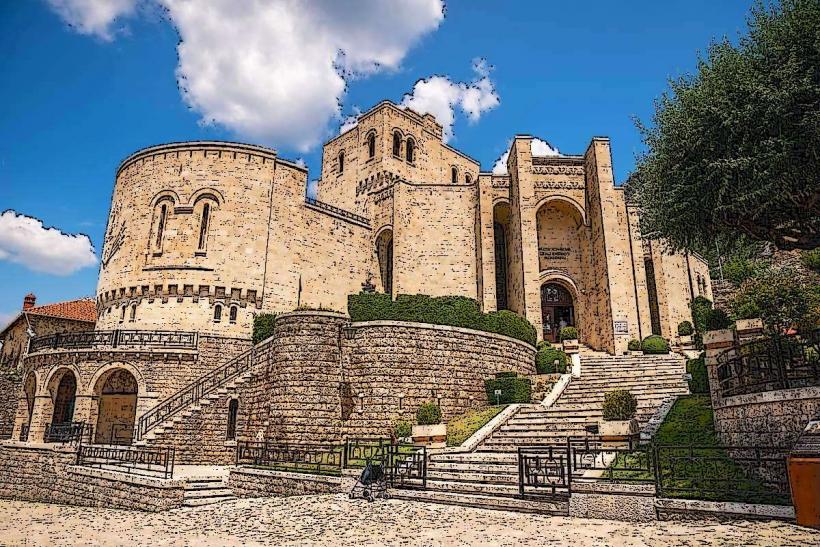Information
Landmark: House of Leaves MuseumCity: Tirana
Country: Albania
Continent: Europe
House of Leaves Museum, Tirana, Albania, Europe
The House of Leaves is a specialized museum located in central Tirana dedicated to the history of electronic surveillance and espionage during Albania's communist era. It occupies a two-story villa across from the Orthodox Cathedral and serves as a memorial to the victims of state persecution.
Visual Characteristics
The structure is a brick-and-stone villa characterized by its dense covering of ivy, which obscures the windows and facade. Built in 1931, the building features a residential layout with multiple small rooms, wooden flooring, and a somber interior palette. The exterior is surrounded by a high perimeter wall and a courtyard containing original security installations.
Location & Access Logistics
The museum is situated at the intersection of Rruga Deshmoret e 4 Shkurtit and Bulevardi Zhan d'Ark. It is located 0.3km south of Skanderbeg Square and is accessible via the "Qendra" bus stop. Pedestrian access is through the main gate on Rruga Deshmoret e 4 Shkurtit; limited street parking is available in the surrounding blocks, with the nearest paid lot at Skanderbeg Square.
Historical & Ecological Origin
The villa was originally a private obstetric clinic opened in 1931 by Dr. Jani Basho. During the German occupation in World War II, it was used by the Gestapo, and subsequently became the headquarters for the Sigurimi (Albanian Secret Service) technical department until 1991, functioning as a center for wiretapping and interceptions.
Key Highlights & Activities
Visitors can view 31 rooms containing original bugging equipment, recording devices, and surveillance cameras from the Cold War era. Documentaries regarding the Sigurimi's operations are screened in the interior cinema room. Educational exhibits detail the methods used to monitor foreign diplomats and Albanian citizens.
Infrastructure & Amenities
The museum provides printed brochures in multiple languages and audio guides. Restrooms are located on the ground floor. There is a small outdoor café in the courtyard. The building has stable 5G cellular reception, though some basement areas have reduced signal density.
Best Time to Visit
The museum is open Tuesday through Sunday, typically from 09:00 to 19:00. Morning visits are recommended to avoid crowds in the narrow corridors. The courtyard garden is best viewed in spring or autumn when the foliage is most dense.
Facts & Legends
The building earned its name "House of Leaves" both from the ivy covering its walls and as a metaphor for the "leaves" of files hidden in the state archives. A local persistent rumor suggested the existence of an underground tunnel connecting the villa directly to the Prime Minister’s office, though only a reinforced basement bunker has been verified.
Nearby Landmarks
Orthodox Autocephalous Church of Albania: 0.05km West
National Bank of Albania: 0.2km North
Rinia Park (Taiwan Center): 0.2km South
Bunk'Art 2: 0.4km Northeast
Skanderbeg Square: 0.3km North



